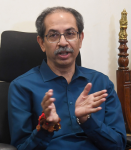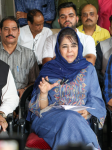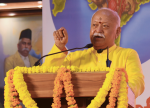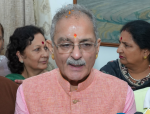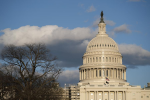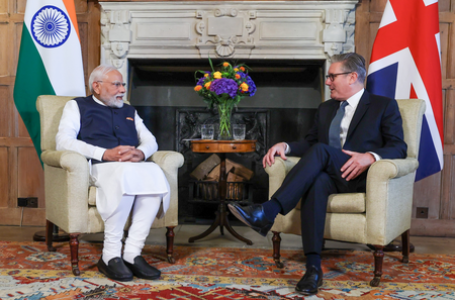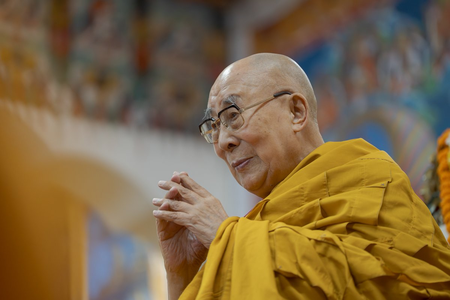
New Delhi: China’s long held hope it would choose the next Dalai Lama and thus strengthen its stranglehold over Tibet has been dashed after the Buddhist spiritual leader’s recent announcement that it will be the Gaden Phodrang Trust comprising his inner circle of monks who will have the sole authority to recognize his future reincarnation. Significantly, in clear messaging to China on his 90th birthday, the 14th Dalai Lama also said that “no one else has any such authority to interfere in this matter”.
This has predictably left China, which describes its annexation of Tibet in 1951 as “peaceful liberation”, bristling with anger. It has thrown a spanner in the works of the Chinese regime’s well laid out plans to appoint a person of its choosing as the next Dalai Lama. Even if two Dalai Lamas are now appointed, one chosen by Beijing and the other by the Gaden Phodrang Trust, the former is unlikely to enjoy much credibility or stature among Tibetans or even the world at large.
More broadly, China perceives this announcement as one that questions its sovereignty over Tibet well over seven decades after it usurped the region. It is extremely sensitive over this issue amid well-founded criticism for its attempts to erase the socio-cultural and religious identity of the Tibetan people. It stands accused of ‘Sinicisation’ of the region while curbing, quite aggressively, the freedom of Tibetans in its effort to assimilate the region with mainland China.
China also no longer uses the name Tibet officially, with the region now called Xizang (Chinese name for Tibet). It found its way into the 19th White Paper released by China on Tibet in 2023. But a mere name change, while not acceding to the demand for autonomy by its people, will not facilitate assimilation.
The current Dalai Lama has become the lodestar for Tibetans worldwide in their resistance to China’s oppressive policies in their homeland–something that has become a bitter pill for Beijing to swallow. Beijing promptly launched a broadside against the Dalai Lama, following his announcement about a successor, once again dubbing the much revered Tibetan spiritual leader, who has lived in exile in India since 1959, as a “separatist”.
A fulminating Chinese ambassador in New Delhi, Xu Feihong, tweeted, “The reincarnation of Dalai Lamas neither began from him nor will end due to him. He has no authority to decide whether the reincarnation system shall continue or be abolished”. The post reflected China’s frustration and anger at the Dalai Lama’s announcement which will also take away the legitimacy of any successor appointed by Beijing.
In the event that there are two Dalai Lamas, New Delhi should formally recognise the one chosen by the Gaden Phodrang Trust, instead of trying to play a neutral role as is being suggested by some. It’s about time India used the presence of the Dalai Lama and the Tibetan government-in-exile on its soil to its strategic advantage, shedding its inhibitions about not rubbing China the wrong way. While India recognises the Tibet Autonomous Region as an inalienable part of China, it needs to throw its weight behind the next Dalai Lama chosen by the Trust, given that Beijing has shown little concern for New Delhi’s own strategic interests. Thus far, New Delhi has chosen to not comment directly on the Dalai Lama controversy with the ministry of external affairs merely saying the Indian government does not take any position or speak on matters concerning beliefs and practices of faith and religion. It, however, does appear to back the Dalai Lama’s announcement in saying that the Indian government has always upheld freedom of religion here and will continue to do so.
Be that as it may, India did well by sending some ministers to participate in the birthday celebrations of the 14th Dalai Lama in McLeodganj, Dharamsala on July 6. Among them were minorities affairs minister Kiren Rijiju, who belongs to Arunachal Pradesh, as well the state’s chief minister, Pema Khandu. China claims the Indian northeastern state as “South Tibet” or “Zangnan”. Prime Minister Narendra Modi too sent birthday greetings to the spiritual leader, all of which raised Beijing’s hackles.
China has not only been making deep inroads into India’s neighbourhood, but also been seeking to grab large parts of what India claims as its own territory through its salami-slicing tactics — the attempt to do so in eastern Ladakh is the latest such instance. Though there has been disengagement from immediate face-off sites between the Indian and Chinese armies in eastern Ladakh, Beijing has as yet shown no inclination for the larger process of de-escalation and de-induction of troops amassed along the entire 3,488-km long Line of Actual Control.
China’s deep military collusion with Pakistan also poses a major threat to India’s security. The latest such instance was the active assistance China provided to Pakistan during Operation Sindoor. Apart from extensively using Chinese military hardware and software, Islamabad also got live satellite feeds from Beijing on Indian military deployments during the May 7-10 cross-border hostilities.
China, of course, also readily comes to Pakistan’s defence on the cross-border terrorism it actively aids and abets against India. At the recent SCO meet in China, Islamabad found backing from Beijing in omitting the mention of the Pahalgam terror massacre in the joint statement, which was eventually not adopted due New Delhi’s strong objections.
Time and again, China has shown itself to be an untrustworthy, even perfidious neighbour. There is little reason, therefore, for India to be mindful of Chinese sensitivities on the Dalai Lama issue any more. Rather, its own strategic interests need to be paramount.
( The writer is senior journalist based in New Delhi. The views expressed in this article are her own. )
INDIA NEWS STREAM



 by Parul Chandra
by Parul Chandra

